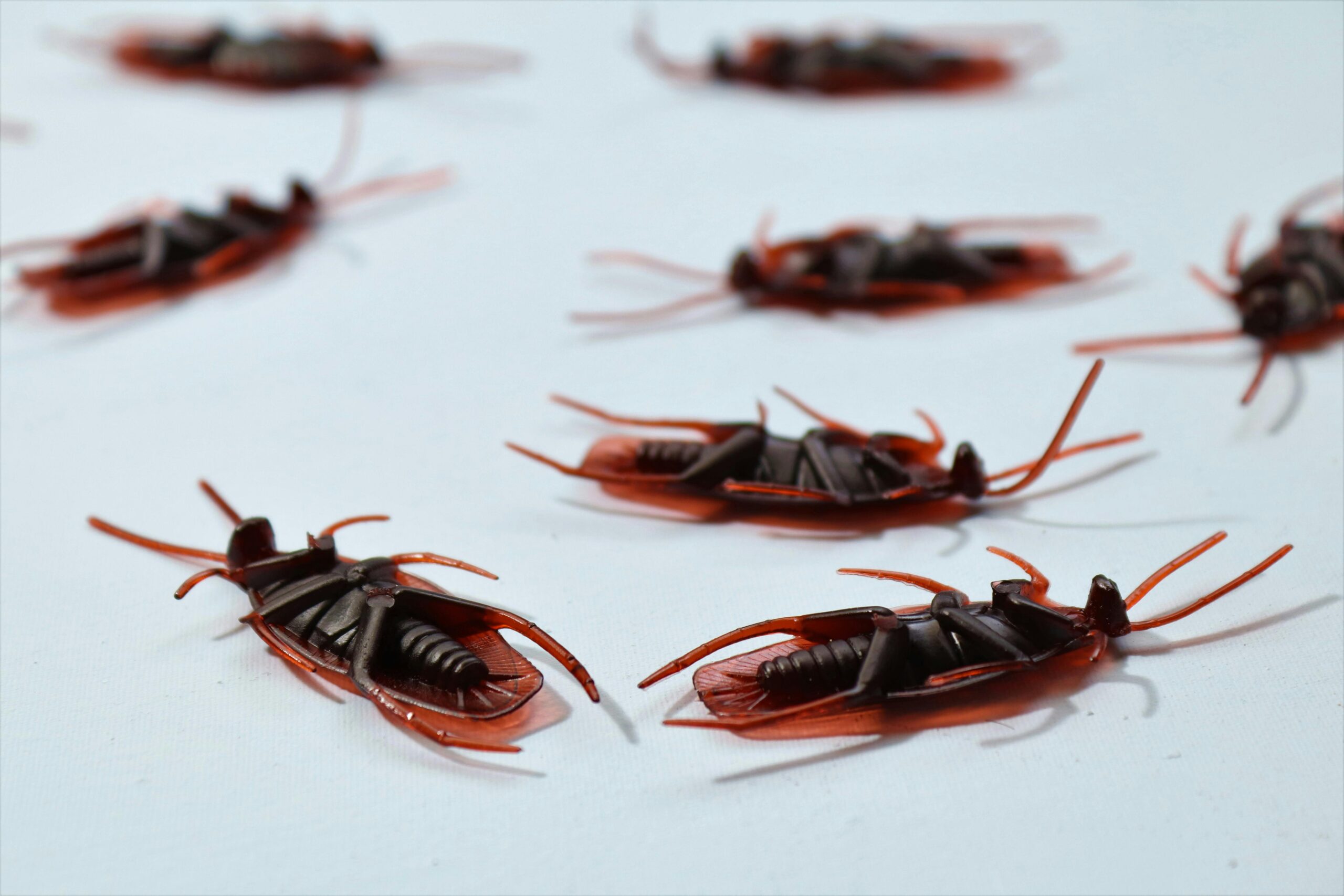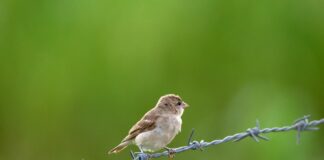When it comes to keeping your home safe and comfortable, home defense bug spray is an absolute game-changer you don’t wanna miss out on. Are you tired of pesky insects invading your living space and ruining your peace? This article, Home Defense Bug Spray: Ultimate Protection Tips You Need Today, dives deep into the most effective strategies to protect your home from unwanted bugs with powerful, easy-to-use sprays. If you’ve been searching for the best ways to safeguard your sanctuary, then you’re in the right place! Discover how to create an insect-free zone using home defense bug spray that works wonders against ants, roaches, spiders, and more.
Why settle for temporary solutions when you can have long-lasting bug protection that keeps creepy crawlies at bay 24/7? We’ll unravel the secret tips and tricks that experts swear by, including how to apply bug spray for home defense correctly, the best times to spray, and which products provide the strongest barrier against infestations. Plus, you’ll learn about the latest innovations in eco-friendly and chemical-free home bug sprays, helping you protect your family and pets without harmful side effects. Wondering if your current bug spray is really up to the task? Stay tuned as we break down what makes a bug spray truly effective for indoor and outdoor home defense.
Don’t let bugs take over your home this season! With the right knowledge and tools, you can enjoy a pest-free environment effortlessly. Whether you’re struggling with summer mosquitoes, stubborn ants, or sneaky spiders, our ultimate guide to home defense bug spray tips will transform your approach to insect control. Ready to reclaim your space? Let’s dive in and explore the must-know tactics that will keep your home safe, clean, and bug-free today!
Top 7 Home Defense Bug Sprays: Which One Offers the Ultimate Protection Against Pests?
In New York, where the hustle of city life meets pockets of green spaces, pest problems could be a real headache for many homeowners. When you think about protecting your home from bugs, picking the right home defense bug spray is crucial. But with so many options available, which one actually offers the ultimate protection against pests? This article will dive into the top 7 home defense bug sprays you can trust, plus some essential tips on how to use them effectively to keep your home pest-free.
Why Home Defense Bug Spray Matters
Pests like ants, roaches, spiders, and mosquitoes don’t just annoy you—they can bring health risks, damage your property, and affect your peace of mind. Historically, people have used various natural and chemical solutions for bug control, but modern sprays are designed to be more effective and long-lasting. A good bug spray acts as both a barrier and a killer, stopping pests before they invade your living space.
In New York, where humidity and seasonal changes create perfect conditions for bugs to thrive, home defense bug sprays become necessary tools for every household. But not all sprays are created equal. Some target specific pests, while others offer broad-spectrum protection. Choosing the wrong product might waste your money and leave you vulnerable to infestations.
Top 7 Home Defense Bug Sprays to Consider
Here’s a list of the best home defense bug sprays available in the market today. Each offers unique benefits, and some are especially suited for urban homes in New York.
Ortho Home Defense Insect Killer
- Targets: Ants, spiders, roaches, and more
- Pros: Long-lasting barrier, easy to apply indoors and outdoors
- Cons: Chemical smell may linger for some hours
- Why it stands out: Creates a 12-month pest barrier, perfect for busy New Yorkers who want less frequent treatments.
Raid Ant & Roach Killer Spray
- Targets: Ants, roaches, and other crawling insects
- Pros: Fast-acting, kills on contact
- Cons: Not designed for outdoor use
- Why it stands out: Great for quick indoor problem solving, especially in kitchens and bathrooms.
Terro Outdoor Ant Killer Spray
- Targets: Outdoor ants and other pests
- Pros: Works well on ant colonies, eco-friendly ingredients
- Cons: Needs frequent reapplication after rain
- Why it stands out: Ideal for New Yorkers with gardens or patios who want natural options.
Bayer Advanced Home Pest Control
- Targets: Wide range of insects including ticks and fleas
- Pros: Multi-surface safe, suitable for lawns and indoor use
- Cons: More expensive than average sprays
- Why it stands out: Offers comprehensive protection, useful if you have pets or kids.
Cutter Backyard Bug Control Spray Concentrate
- Targets: Mosquitoes, ticks, fleas
- Pros: Concentrated formula, covers large areas
- Cons: Requires mixing, not ready-to-use
- Why it stands out: Great for those who want to treat wide outdoor areas around the home.
Hot Shot Ant & Roach Killer
- Targets: Ants, roaches, silverfish
- Pros: Quick knockdown, residual effect
- Cons: Strong chemical scent, not recommended for sensitive areas
- Why it stands out: Trusted brand for fast indoor relief from crawling pests.
EcoSMART Organic Insect Killer
- Targets: Various bugs including spiders and mosquitoes
- Pros: Plant-based ingredients, pet-safe after drying
- Cons: Needs frequent application, less effective on heavy infestations
- Why it stands out: Perfect for those looking for eco-friendly and non-toxic options.
How to Choose the Best Bug Spray for Your Home
Choosing the right home defense bug spray depends on several factors. You want something fits your specific pest problem, safe for your family, and easy to use.
- Identify the pest: Different sprays work better for certain bugs. Know what you’re dealing with.
- Consider the application area: Indoor sprays differ from outdoor ones. Some are safe for food prep areas, others aren’t.
- Check the ingredients: If you have pets or children, avoid harsh chemicals. Organic or natural sprays could be better.
- Look for residual effect: Sprays that offer long-lasting protection reduce the need for frequent applications.
- Budget: Some sprays are more expensive but offer better value through effectiveness and coverage.
Home Defense Bug Spray: Ultimate Protection Tips You Need Today
Using the bug spray correctly is just as important as choosing the right product. Here are some practical tips to get the most out of your home defense bug spray:
- Read label instructions carefully.
How to Choose the Best Home Defense Bug Spray for Indoor and Outdoor Use
When it comes to keeping your home safe from pesky insects, choosing the right home defense bug spray is a task that most New Yorkers might overlook until it’s too late. Whether bugs invade your indoor space or the outside yard, selecting the best product can make all the difference. But with so many options available, how do you really decide which bug spray fits your needs? This article will guide you through the basics of home defense bug spray, including tips you need to protect your home today.
Why Home Defense Bug Spray Matters
Bugs aren’t just annoying, some can be harmful. Mosquitoes, ticks, and spiders can carry diseases or cause allergic reactions. In New York, especially during warmer months, these pests become very active. Home defense bug spray works by either repelling or killing these unwanted guests before they cause problems. The wrong product might not only waste your money but also put your family’s health at risk.
Historically, bug sprays have evolved from simple mixtures of natural oils to sophisticated chemical formulas. Early civilizations used plants like citronella or neem for pest control, but modern sprays contain active ingredients designed for long-lasting protection. Knowing this helps you understand why some sprays work better indoors while others are better suited for outdoor use.
Indoor vs Outdoor Bug Spray: What’s The Difference?
One major mistake people makes is using outdoor bug spray inside the house. These sprays often contain stronger chemicals that can irritate the respiratory system or damage furniture and floors. Indoor sprays usually are formulated to be safer for enclosed spaces and target bugs like ants, cockroaches, and spiders that prefer the indoors.
Outdoor sprays, on the other hand, are designed for broad coverage and often target mosquitoes, ticks, and flies. They may need to withstand weather conditions such as rain or sunlight, so they are more durable.
Here is a simple comparison table to understand better:
| Product Type | Typical Use | Active Ingredients | Safety Considerations |
|---|---|---|---|
| Indoor Bug Spray | Kitchens, bedrooms | Pyrethrin, permethrin (low conc) | Safe for pets if used correctly |
| Outdoor Bug Spray | Gardens, patios | DEET, picaridin, permethrin (high conc) | Avoid direct contact with skin |
| Natural Bug Spray | Indoor/outdoor | Essential oils like citronella, eucalyptus | Usually safer but less effective |
| Bug Foggers | Entire rooms/outside | Various insecticides | Use with caution, not for frequent use |
How To Choose The Best Home Defense Bug Spray
Choosing the best bug spray depends on several factors. First, identify what kind of bugs you are fighting. If you got mosquitoes outside, look for sprays with DEET or picaridin, which are proven repellents. For ants or cockroaches inside, sprays with pyrethrins or boric acid might be better.
Next, consider the safety. If you have pets or children, you should prioritize sprays labeled safe for families. Many natural sprays use plant-based ingredients, but they sometimes need more frequent application to be effective.
Ease of use also matters. Some sprays come in pump bottles, others as aerosols or foggers. Foggers cover large areas quickly but require you to leave the room during use, while pump sprays give you more control but take more time.
You might find products claiming “all-natural” or “eco-friendly.” While these are attractive for environmentally conscious consumers, always check reviews or scientific backing because not all natural sprays work well against all pests.
Tips For Ultimate Protection With Bug Spray
Using a bug spray alone is not enough sometimes. Here are some practical tips to maximize protection:
- Read the label carefully: Follow instructions exactly, especially how much to use and where.
- Apply at the right time: For outdoor areas, spraying in the evening reduces mosquito activity.
- Combine with other methods: Use screens on windows, keep doors closed, and eliminate standing water.
- Reapply when needed: Some sprays lose effectiveness after a few hours, especially outdoors.
- Store sprays properly: Keep away from heat or children to maintain safety and effectiveness.
Practical Examples For New Yorkers
Imagine living in Brooklyn with a backyard full of bushes and trees. Mosquitoes will be common in the summer. A good outdoor bug spray containing DEET or picaridin should be applied to your yard and patio. Inside your apartment, if you find cockroaches or ants, a pyrethrin-based indoor spray will help without risking your family’s health.
In Queens, if you have pets that go outdoors, you need to pick sprays that are safe for animals. Look for labels that mention pet safety or consult your veterinarian before use.
Common Mistakes To Avoid
Many people think spraying bugs more often will solve problems faster. But overuse can lead to insect resistance or harm beneficial insects like bees. Also, mixing different sprays can cause dangerous chemical reactions.
Expert Tips: Maximizing Your Home Defense Bug Spray for Long-Lasting Pest Control
When it comes to keeping your home safe from pesky insects, nothing beats a trusty home defense bug spray. But many people don’t know how to get the most out of these products. You might buy a can, spray it around, and hope for the best, but there’s actually more to it if you want long-lasting protection. Expert tips on maximizing your home defense bug spray can make a huge difference in how effective your pest control efforts will be. This article will dive into some practical advice, historical background, and real-world examples so you can protect your home better than ever before.
Why Home Defense Bug Spray Is So Popular
Home defense bug sprays have been around for decades. The modern formulations mostly appeared after World War II, when chemicals like DDT were first introduced for pest control. Though DDT is now banned in many countries for environmental reasons, the idea of using targeted insecticides remained. Today’s home defense sprays are safer and more sophisticated, combining ingredients that kill or repel bugs without harming humans or pets when used properly.
People choose these sprays because they offer an easy and fast way to deal with common pests such as ants, roaches, spiders, and mosquitoes. Unlike traps or baits, sprays can cover larger areas quickly and can be applied to cracks, baseboards, and other hard-to-reach places. However, just spraying randomly won’t work as well as a more thought-out approach.
How To Use Home Defense Bug Spray for Maximum Effectiveness
Using your bug spray right is the key step many overlook. Here’s some expert advice on how you should be applying it:
- Identify the pest hotspots: Look for entry points like windows, doors, and vents. Also check under sinks, behind appliances, and along baseboards.
- Clean the area first: Dirt, dust, or debris can block the spray from reaching the bugs or their nests.
- Follow label directions: This is important. Some sprays require you to keep the area ventilated or avoid spraying on certain surfaces.
- Spray in a sweeping motion: Don’t just spot spray, try to cover a wider area evenly.
- Don’t overuse: Using too much can cause resistance in bugs or harm your home environment.
Practical Tips for Long-Lasting Pest Control
If you want your home defense bug spray to last longer and keep working, consider these simple strategies:
- Use it as part of a broader pest management plan. Don’t rely only on sprays; combine with sealing cracks, removing food crumbs, and maintaining cleanliness.
- Reapply after cleaning or rain. If you use sprays outdoors, heavy rain can wash away the chemicals.
- Store the spray properly. Heat and sunlight can degrade the active ingredients.
- Rotate products when possible. Bugs can sometimes develop resistance to a single chemical. Switching brands or active ingredients helps reduce this risk.
Comparing Home Defense Bug Spray to Other Pest Control Methods
Sometimes people wonder if bug sprays are better than traps, baits, or professional extermination. Here’s a quick comparison table to help understand when sprays make sense:
| Pest Control Method | Pros | Cons | Best Use Case |
|---|---|---|---|
| Home Defense Bug Spray | Fast-acting, easy to apply | May require repeated use | Indoor/outdoor general pest control |
| Traps and Baits | Targeted, less chemical exposure | Slower results, limited pest types | Rodent or specific insect control |
| Professional Extermination | Expert knowledge, thorough treatment | Costly, may use harsher chemicals | Severe infestations or hard-to-reach areas |
| Natural Remedies | Eco-friendly, safe around pets | Less effective on heavy infestations | Minor pest problems, preventive use |
Common Mistakes That Reduce Bug Spray Effectiveness
Many homeowners unintentionally make errors that reduce how well their bug sprays work. Some of the frequent mistakes include:
- Spraying only when you see bugs, instead of preemptively.
- Ignoring the label instructions or mixing different sprays together.
- Not treating entry points or hiding spots where insects breed.
- Using sprays in cluttered or dirty areas without cleaning first.
- Applying sprays during high humidity or rain, which can wash chemicals away.
Example of an Effective Home Defense Routine
To put everything together, here’s an example routine that uses home defense bug spray wisely:
- Monday: Vacuum and clean kitchen, removing crumbs and spills.
- Tuesday: Inspect doors, windows, and vents for cracks; seal any openings.
- Wednesday: Apply home defense bug spray along baseboards, entry points, and outdoor perimeter.
- Friday: Check for any new signs of pests; spot treat if necessary.
- Monthly: Rotate between different spray formulas or pest control products.
Environmental and Safety
Natural vs. Chemical Home Defense Bug Sprays – What’s Safer for Your Family?
Living in New York, where the hustle and bustle never seems to stop, dealing with pests at home is a common problem many families face. Choosing the right home defense bug spray is crucial, but many people get stuck between natural and chemical options, wondering which one is truly safer for their loved ones. This article will explore the differences, benefits, and risks of natural versus chemical bug sprays, plus share some ultimate protection tips that you can use today to keep your home safe and bug-free.
Natural vs Chemical Home Defense Bug Sprays: What’s the Big Difference?
Natural bug sprays rely on ingredients derived from plants or minerals. Common components include essential oils like citronella, peppermint, eucalyptus, and neem oil. These sprays often advertise themselves as eco-friendly, biodegradable, and less harmful to humans and pets. They usually work by repelling insects rather than killing them instantly.
Chemical bug sprays, on the other hand, contain synthetic substances designed to kill or incapacitate bugs. Ingredients like pyrethroids, DEET, and permethrin are typical examples. These chemicals have been widely used since the mid-20th century and are known for their quick, effective pest control.
Historical Context: How Bug Sprays Evolved
The use of chemical insecticides began in the 1940s with DDT, which was later banned due to its environmental impact. Since then, safer chemicals like pyrethroids have been developed, but concerns about toxicity and resistance remain. Meanwhile, natural remedies have been used for centuries by indigenous and traditional communities worldwide. Recently, the demand for organic and non-toxic pest control surged as people become more health-conscious and environmentally aware.
Safety Concerns: Which Is Safer for Your Family?
It’s complicated. Chemical sprays are powerful and fast-acting but can cause allergic reactions, respiratory issues, or neurological problems if misused or overexposed. Children and pets are especially vulnerable. On the contrary, natural sprays seem gentler but may not be as effective against heavy infestations, leading to repeated applications which could ironically increase exposure.
Factors to consider when choosing:
- Allergies or sensitivities in your family
- Presence of pets or small children
- Severity and type of pest problem
- Environmental impact preferences
- Cost and availability
Comparing Natural and Chemical Bug Sprays
Here’s a simple comparison table to help you understand the two better:
| Aspect | Natural Bug Sprays | Chemical Bug Sprays |
|---|---|---|
| Main Ingredients | Essential oils, plant extracts | Synthetic chemicals like pyrethroids, DEET |
| Effectiveness | Moderate, repels bugs | High, kills bugs quickly |
| Safety for Children/Pets | Generally safer but not always | Potentially toxic if misused |
| Environmental Impact | Biodegradable, eco-friendly | Can be harmful to wildlife and water sources |
| Application Frequency | Often needs reapplication | Longer lasting effects |
| Cost | Usually more expensive | Generally cheaper and widely available |
Ultimate Protection Tips You Need Today for Home Defense Bug Spray
No matter which type of spray you choose, using it effectively is just as important as what’s inside the bottle. Here are some practical tips to maximize your home defense:
- Identify the Pest: Knowing what kind of bug you’re dealing with helps select the right spray and treatment method.
- Read Instructions Carefully: Overuse or improper application can be dangerous and ineffective.
- Use Barriers: Seal cracks, install screens on windows and doors to prevent bugs from entering in the first place.
- Keep Clean: Food crumbs and standing water attract pests, so maintaining cleanliness reduces infestation risks.
- Apply During Low Wind: This prevents sprays from drifting into unwanted areas or inhaled by family.
- Combine Methods: Use sprays along with traps, natural predators (like ladybugs), or ultrasonic repellents for comprehensive defense.
- Test Patch: Try sprays on a small area to check for any allergic reactions or damage.
- Store Safely: Keep sprays out of reach of children and pets, preferably in locked cabinets.
Practical Example: Using Home Defense Bug Spray in a Typical NYC Apartment
Imagine living in a Manhattan apartment where cockroaches and ants are common visitors. A chemical bug spray might quickly eliminate the pests but could leave a strong odor and pose risks to your toddler. Alternatively, a natural spray made from peppermint oil could repel bugs without harsh smells, but might need frequent spraying. Combining regular cleaning, sealing entry points, and using natural sprays during the day with chemical treatments in hard-to-reach areas might be the best way to balance safety and effectiveness.
When to Call Professionals
Sometimes, DIY sprays aren’t enough, especially for severe infestations or when dealing with dangerous pests like wasps or bed bugs. Pest control professionals use
Step-by-Step Guide: Using Home Defense Bug Spray Effectively to Keep Bugs Out of Your Home
Keeping unwanted bugs out of your home is a challenge many New Yorkers face, especially during warmer months when insects like ants, spiders, and cockroaches tend to invade living spaces. One of the most practical solutions is using home defense bug spray. But, many people get confused on how to use it correctly to get best results. This guide will walk you through step-by-step on using home defense bug spray effectively, plus give you ultimate protection tips you need today. Whether you’re battling pantry moths or pesky mosquitoes, understanding how to properly apply bug spray can save you a lot of frustration.
What is Home Defense Bug Spray and Why It Matters
Home defense bug spray is specially formulated pesticide product designed to create a protective barrier around your home. Unlike general insect sprays, it often targets specific bugs and lasts longer on surfaces. The idea is to stop bugs before they enter your living areas by treating entry points like doorways, window sills, and cracks. This type of spray usually contains active ingredients like bifenthrin or permethrin, which disrupt the nervous system of insects causing them to die or avoid treated areas.
Historically, bug sprays evolved from simple mixtures of natural oils like citronella or pyrethrum to more advanced chemical formulas developed in mid-20th century. These modern products provide more effective and long-lasting protection but also require careful handling due to their chemical nature. Using home defense bug spray properly means you protect your home without risking your family’s health or the environment.
Step-by-Step Guide to Using Home Defense Bug Spray Effectively
Identify Problem Areas First
Start by inspecting your home for any signs of bugs or potential entry points. Common spots includes window frames, door thresholds, utility line penetrations, and cracks in foundations. Look for trails of ants or spider webs to know where bugs are most active.Prepare the Area
Clear away furniture, toys, and food items from the areas you plan to spray. Make sure pets and children are kept out until the spray dry or settles. Wearing gloves and a mask is advisable to prevent skin contact or inhaling fumes.Shake the Can or Mix the Spray
If using aerosol can, shake it well for about 10-15 seconds. For concentrates, carefully measure and mix with water according to label instructions. Mixing ratios vary so follow manufacturer’s directions strictly.Apply the Spray on Exterior Perimeter
Spray along the foundation of the house, focusing on cracks and crevices. Also treat door thresholds, window sills, and any other potential bug entry points. Use a sweeping motion to ensure even coverage.Treat Interior Problem Areas Sparingly
Some home defense sprays are safe for indoor use but always check label first. Spray behind appliances, under sinks, and in corners where bugs hide. Avoid spraying on food preparation surfaces or directly on pets.Allow Drying Time
Let the treated areas dry completely before touching or allowing pets back inside. This usually takes about 2-4 hours depending on ventilation and temperature.Repeat Treatments When Necessary
Most sprays last between 2 to 4 weeks. For heavy infestations, reapply every two weeks until bugs are under control. Avoid over-spraying as it might cause resistance or health hazards.
Ultimate Protection Tips You Need Today
Seal Entry Points
Caulking cracks and installing door sweeps will reduce bugs’ access. Spray alone won’t keep bugs out if they can simply walk around it.Keep Your Home Dry
Bugs love moisture. Fix leaky pipes, use dehumidifiers, and ensure proper drainage to make your home less inviting.Clean Regularly
Vacuuming and wiping surfaces remove crumbs and bug eggs. Pay attention to kitchen counters and pet feeding areas.Use Bug Traps and Baits
Complement your spray with traps for ants or roaches. These works by attracting bugs and killing them, reducing overall population.Rotate Sprays
Using the same active ingredient repeatedly can cause bugs to develop resistance. Alternate between products with different chemicals.Protect Your Yard
Trim bushes away from your home and remove standing water where mosquitoes breed. Spraying outdoor perimeter reduces bugs trying to enter.
Comparing Popular Home Defense Bug Sprays: What Works Best?
Here’s a quick look at some common home defense sprays and their features:
| Product Name | Active Ingredient | Indoor/Outdoor | Residual Effect | Target Bugs |
|---|---|---|---|---|
| Ortho Home Defense | Bifenthrin | Both | Up to 3 months | Ants, Spiders, Roaches |
| Raid Max Bug Barrier | Lambda-cyhalothrin | Outdoor only | 4-6 weeks | Ants, |
Conclusion
In conclusion, choosing the right home defense bug spray is essential for maintaining a safe and comfortable living environment free from unwanted pests. Throughout this article, we’ve emphasized the importance of selecting sprays that are both effective and safe for your family and pets, highlighting key ingredients to look for and the advantages of natural versus chemical options. Proper application techniques and regular maintenance also play a crucial role in maximizing the spray’s protective benefits. By staying informed and proactive, you can significantly reduce the risk of infestations and create a healthier home atmosphere. Don’t wait until pests become a problem—take action now by investing in a reliable home defense bug spray that suits your specific needs. Protect your home, safeguard your loved ones, and enjoy peace of mind all year round.





































